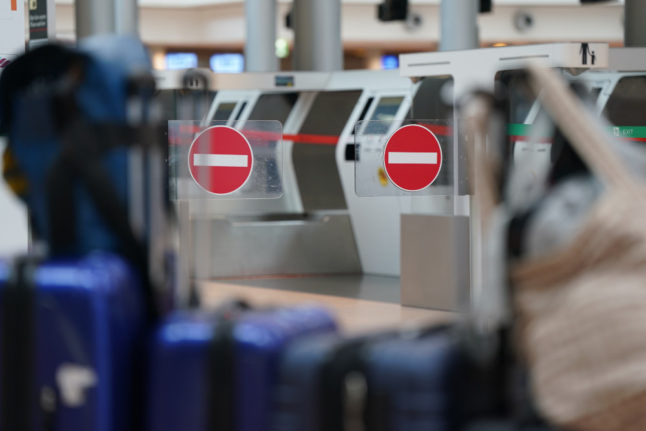Strikes stretching into the peak of travel season became less likely on Monday, after both the Verdi trade union and airport employers accepted an arbitrator’s decision which could settle the wage dispute for around 25,000 aviation security staff across the country.
Salary increases of between 13.1 and 15.1 percent were agreed in three stages over a period of 15 months, as reported by the employers’ association BDLS.
The collective agreement, to be formalised on Tuesday afternoon, is set to run until the end of March 2025.
The affected workers are employed by private service providers who check passengers, freight and staff at airports outside Bavaria.
Hourly wages are set to increase by €1.85 and €2.90 depending on the occupational group. Verdi had previously called for an increase of €2.80 for a period of 12 months.
From January 1st, 2025, employees at passenger checkpoints will receive a basic hourly wage of €23.30, while employees at general access control points to the airport will see their salaries upped to €22.39 per hour.
But the particularly contentious issue of overtime bonuses was postponed and is to be renegotiated at the end of the year.
An end to airport strikes?
This year, Verdi organised several rounds of warning strikes at airports across Germany, paralysing flight traffic and affecting hundreds of thousands of passengers.
Other airport strikes are still possible this summer, depending on the outcome of additional negotiations with flight attendants’ union Ufo, whose also staged several walkouts in the last few months.
But so far, it’s looking less likely: At Lufthansa, negotiations with the Ufo union for cabin crew have been postponed until this week, but recent talks have been constructive.
READ ALSO: Could Germany soon see more airport strikes?
According to figures from the airport association ADV, the waves of strikes in aviation security have affected around half a million passengers.
ADV Managing Director Ralph Beisel welcomed the successful arbitration with relief.
“Although the airport operators are not party to the collective labour agreement, they were indirectly affected by the rampant warning strikes,” said Beisel on Monday.
“Now travellers can book their flights with peace of mind again. At least the risk of strikes at the aviation security checkpoints has been averted.”



 Please whitelist us to continue reading.
Please whitelist us to continue reading.
Member comments